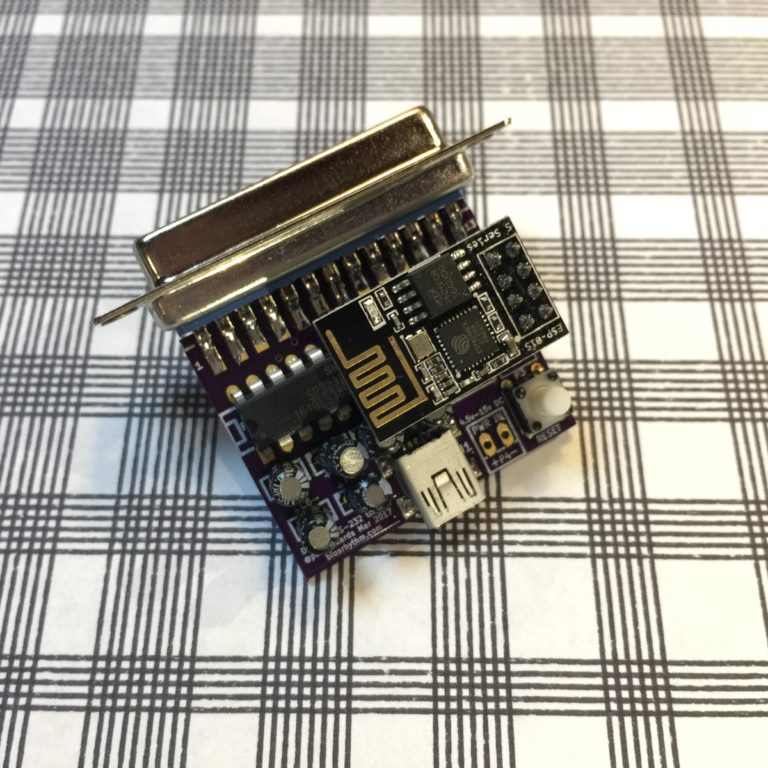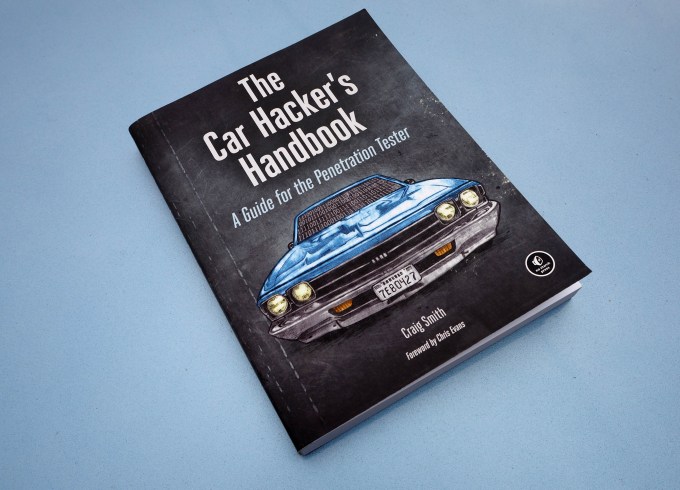In his foreign policy speech, Donald Trump claimed that “now ISIS is making millions and millions of dollars a week selling Libya oil.” But an expert on Libya’s oil operations told us there’s no evidence that the Islamic State is producing or selling oil out of that country.
Trump also repeated false and misleading claims that we have vetted before on the NAFTA pact, Iraq War and the U.S. trade deficit:
- Trump said NAFTA “literally emptied our states of our manufacturing and our jobs.” Actually, economic studies say NAFTA’s impact on U.S. jobs has been small.
- Trump claimed he was “totally against” the Iraq War and warned “that it would destabilize the Middle East.” There is no public record of him being against the war before it started.
- Trump said President Obama “crippled us” with “a huge trade deficit.” Actually, the trade deficit has gone down under Obama.
Trump also criticized Hillary Clinton’s response to the Benghazi attacks on Sept. 11, 2012. We address one of the Benghazi claims below, and in a separate article — “Trump on Clinton’s ‘3 a.m. Call’ ” — we write about Trump’s claim that Clinton failed to take charge during the Benghazi attacks, and instead “decided to go home and sleep.” The evidence shows Clinton was actively involved in responding to the attacks, and subsequent investigations concluded the government response was appropriate.
ISIS and Libyan Oil
Trump delivered his speech April 27 in Washington, D.C., where he identified what he called “five main weaknesses in our foreign policy.” In the last of his five points, Trump said, “America no longer has clear understanding of our foreign policy goals.” He cited Libya as an example.
Trump, April 27: And now ISIS is making millions and millions of dollars a week selling Libya oil. And you know what? We don’t blockade, we don’t bomb, we don’t do anything about it. It’s almost as if our country doesn’t even know what’s happening, which could be a fact and could be true.
Claudia Gazzini, a senior analyst for Libya with the International Crisis Group, told us that the Islamic State’s strategy thus far has largely been to disrupt oil operations in Libya rather than to try and make a profit off of them. (She referred to the Islamic State in her emails as IS, rather than ISIS, as Trump calls the terrorist group that is occupying Syria and parts of Iraq.)
“IS adopted a hit-and-run strategy aimed at putting oil facilities off line in order to deprive the Libyan state from obtaining revenues,” Gazzini wrote in an email to FactCheck.org.
She previously told our colleagues at the Washington Post Fact Checker and PolitiFact.com that “there is no evidence that they are pumping out the crude oil and certainly no evidence that they are trading it.”
(Incidentally, the State Department in December estimated that ISIS was making $500 million a year on oil from ISIS-controlled oil fields in Syria.)
It’s true that Islamic State fighters have made numerous attacks on oil fields across Libya, according to news reports. In March 2015, it was even reported that militants believed to be associated with the Islamic State attacked and “took control” of oil fields in Bahi and Mabruk in central Libya.
But Gazzini said that wasn’t the case.
“They don’t ‘control’ those fields either,” she wrote in an email. “IS attacked those fields in Feb-March 2015, destroyed the equipment there, killed people, and left.”
Time magazine, in its report on the attacks on fields in Bahi and Mabruk, said that “even if they were able to operate the fields, insurgents would find it difficult to export oil via the country’s Mediterranean ports.”
As Time‘s report noted, in 2014, U.S. Navy Seals stopped an attempt by rebels in Eastern Libya to smuggle oil out of the country aboard an oil tanker called the Morning Glory. That contradicts Trump’s claim that the U.S. doesn’t “do anything about” unauthorized oil sales from Libya.
The Tripoli-based National Oil Corporation says that it is “the only authority legally empowered to sell Libyan crude oil.”
NAFTA and Jobs
Trump claimed that the North American Free Trade Agreement “has been a total disaster for the United States” and has “literally emptied our states of our manufacturing and our jobs.” Actually, economic studies say NAFTA’s impact on U.S. jobs has been small.
Trump clearly engages in hyperbole in saying that the trade agreement between the U.S., Canada and Mexico has “literally emptied our states” of manufacturing and jobs. There were 12.3 million manufacturing jobs in the U.S. in March, according to the Bureau of Labor Statistics.
That’s certainly not empty, but the number is a drop of 27 percent from December 1993, the month before NAFTA took effect, when there were 16.8 million manufacturing jobs. The peak in that 22-year span was in March and April 1998, with 17.6 million manufacturing jobs. Overall jobs, however, have gone up 28 percent since December 1993, from 112.3 million to 143.8 million. (The civilian labor force — those working or looking for work, over age 16 — during this time frame has gone up by 23 percent, or 29.3 million people.)
Many factors, beyond the 1994 trade agreement, impact jobs and the economy, and as we have written before, economists have debated the effects of the trade agreement. But overall, economists have found the net effect on jobs from NAFTA has been small.
A 2015 report from the nonpartisan Congressional Research Service called the impact “relatively modest.”
CRS, April 16, 2015: In reality, NAFTA did not cause the huge job losses feared by the critics or the large economic gains predicted by supporters. The net overall effect of NAFTA on the U.S. economy appears to have been relatively modest, primarily because trade with Canada and Mexico accounts for a small percentage of U.S. GDP.
That report also noted that it was difficult to gauge the overall economic impact “since trade and investment trends are influenced by numerous other economic variables, such as economic growth, inflation, and currency fluctuations.” CRS said: “The agreement may have accelerated the trade liberalization that was already taking place, but many of these changes may have taken place with or without an agreement.”
Democratic presidential candidate Bernie Sanders has claimed that NAFTA cost the U.S. 800,000 jobs, a figure that comes from the Economic Policy Institute, which is partly funded by labor unions. EPI’s NAFTA figures have been questioned by other economists who have charged the liberal think tank ignored other factors.
Another study, published 10 years after the agreement went into effect, said NAFTA may have caused a net gain in employment. The Carnegie Endowment for International Peace study said that 525,000 workers had lost their jobs because of NAFTA, according to the NAFTA Trade Adjustment Assistance program, which gives assistance to those affected by the agreement, but that those jobs “were likely offset by other jobs gained” and resulted in “either a neutral or very small net positive effect on employment.”
The Congressional Research Service also evaluated four studies in 2004 and said that “NAFTA had little or no impact on aggregate employment.”
Eleven years later, CRS came to the same conclusion.
Iraq War
Trump said he was “totally against the war in Iraq, very proudly, saying for many years that it would destabilize the Middle East.” There is no evidence that Trump opposed the Iraq War before it started, let alone him saying “it would destabilize the Middle East.” In fact, in a Sept. 11, 2002, interview — about six months before the war — Trump was asked by radio shock jock Howard Stern if he supported going to war with Iraq. Trump halfheartedly responded, “Yeah, I guess so,” as first reported by BuzzFeed.
The war started on March 19, 2003. In our timeline of Trump’s public statements on the Iraq War in 2002 and 2003, we found that Trump had a financial interest in opposing it in the days leading up to the war. But there is no instance in which he spoke against going to war. The first definitive instance we could find was on Sept. 11, 2003, about six months after the war started, in which Trump said in a TV interview: “I would have fought terrorism but not necessarily Iraq.”
Trump was an early critic of the war, but he expressed concerns about the cost — not that “it would destabilize the Middle East.” On July 1, 2003, less than four months after the war started, Trump said in a TV interview that he would “love to see” U.S. cities and states “get some of the money that’s going toward Iraq.”
Trump’s opposition to the war was well-documented by 2004.
U.S. Trade Deficit
Trump said Obama “crippled us” with “a huge trade deficit.” Actually, the trade deficit has gone down under Obama, as we wrote earlier this month. In 2015, the U.S. trade deficit for goods and services was $539.8 billion — down 24 percent from $708.7 billion in 2008, according to the Bureau of Economic Analysis. Obama took office in January 2009.
Trump also exaggerated when he claimed that “our manufacturing trade deficit with the world is now approaching $1 trillion a year.” Trump is referring to the trade deficit for manufactured goods (excluding services), and that deficit was $759.3 billion, according to the BEA. That’s not quite “approaching $1 trillion.” Also, like the total trade deficit, the U.S. deficit on manufactured goods is down under Obama. It was $832.5 billion in 2008, so it is down by about 9 percent.
Benghazi Attacks
Trump said, “Clinton blames it all on a video, an excuse that was a total lie, proven to be absolutely a total lie.” Our timeline on Benghazi shows that the Obama administration, including Clinton, initially cited the release of an anti-Muslim video by a Florida pastor as a possible reason for the attacks on the Benghazi diplomatic facility and CIA annex on Sept. 11, 2012. However, it also shows that Clinton was quicker than other top administration officials – including Obama — to call it a terrorist attack.
In a statement issued at about 10 p.m. on the day of the attack, Clinton said that “some have sought to justify this vicious behavior as a response to inflammatory material posted on the Internet.” About an hour later, she sent an email to her daughter, Chelsea, that read: “Two of our officers were killed in Benghazi by an al Qaeda-like group.” On Sept. 21 — 10 days after the attack — Clinton said “[w]hat happened in Benghazi was a terrorist attack.”
On Oct. 15, Clinton, in an interview on CNN, blamed the “fog of war” when asked why the administration initially claimed the attack began as a spontaneous demonstration in response to the anti-Muslim video.
— D’Angelo Gore, Eugene Kiely and Lori Robertson


 Uh-oh! It’s 20 years to the day since the introduction of one of the internet’s most well-remembered chat apps: ICQ.
Uh-oh! It’s 20 years to the day since the introduction of one of the internet’s most well-remembered chat apps: ICQ. 

 Imagine having a perfect recall and a way to auto-edit your life into exciting, fun snippets (even if your life isn’t exciting or fun.) That’s what the Perfect Memory wireless camera aims to do. The camera, created by the team at General Streaming Systems, LLC, is an evolution on the traditional body cam. This device connects to a chain you can wear around your neck or can clip to…
Imagine having a perfect recall and a way to auto-edit your life into exciting, fun snippets (even if your life isn’t exciting or fun.) That’s what the Perfect Memory wireless camera aims to do. The camera, created by the team at General Streaming Systems, LLC, is an evolution on the traditional body cam. This device connects to a chain you can wear around your neck or can clip to… 


 In the coming age of autonomous cars, connected cars, and cars that can communicate with each other, the city’s infrastructure, our phones, and the entire internet of things, data security is going to be paramount. That’s why Craig Smith, who has spent 20 years working in banking and healthcare digital security, wrote The Car Hacker’s Handbook: A Guide for the Penetration Tester.
In the coming age of autonomous cars, connected cars, and cars that can communicate with each other, the city’s infrastructure, our phones, and the entire internet of things, data security is going to be paramount. That’s why Craig Smith, who has spent 20 years working in banking and healthcare digital security, wrote The Car Hacker’s Handbook: A Guide for the Penetration Tester. 

 Stingray devices that can intercept mobile calls, track users and block signals are definitely being used in the UK, it's come to light. The first official confirmation that these "IMSI catchers" are out in the wild comes from the Scottish Prison Ser...
Stingray devices that can intercept mobile calls, track users and block signals are definitely being used in the UK, it's come to light. The first official confirmation that these "IMSI catchers" are out in the wild comes from the Scottish Prison Ser...


